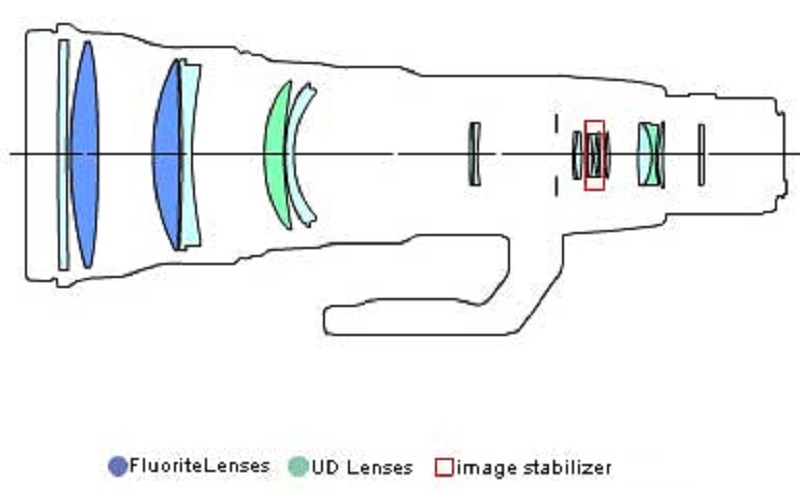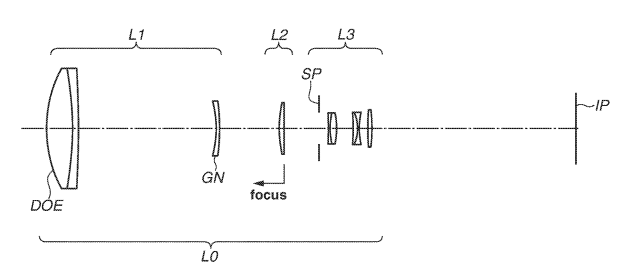This post may contain affiliate links(s). An affiliate link means I may earn advertising/referral fees if you make a purchase through my link,
without any additional cost to you. It helps to keep this site afloat. Thank you in advance for your support. If you like what we do here, maybe buy me a
coffee.
F-Eleven - Say what?
We had discovered this patent back in November 2019, which shows some very simple DO super telephotos. See patent application: 20190346660. It confused us back then, and we never gave it much thought. Little did we know? Right?
Essentially these are very simplistic lenses. Given the spacing in between the groups, it's highly possible these are somewhat collapsible.
Here are the embodiments in question;
Focal Length 780.00
F-Number 11.00
Half Field Angle 1.59 (.degree.)
Image Height 21.64
Total Length of 389.25
Lens BF 127.73
Focal Length 585.00
F-Number 10.99
Half Field Angle 2.12 (.degree.)
Image Height 21.64
Total Length of 334.87
Lens BF 134.40
Focal Length 390.00
F-Number 8.20
Half Field Angle 3.18 (.degree.)
Image Height 21.64
Total Length of 250.00
Lens BF 92.99
So how much are we saving in length? Some, but not as much as you may think for instance the Canon EF 800mm F5.6 is 461mm, whereas the 800mm in this embodiment is 345mm if it was made for the EF mount as well. That's the effect of DO. Still though a 800mm super telephoto a little over 1 foot in length, isn't really that bad is it? ;)
This lens will be somewhere around 9 elements across 6 groups, while the 800mm F5.6L is 18 elements across 14 groups. With a much simpler design, the lens will be cheaper to make. It will also be lighter because of both the design and also the fact that it's 3 stops less light.
Here's the element design of the Canon EF 800mm F5.6L

and now this;

Certainly a much simpler design.
Both of these lenses have elements at the business end of the lens. The difference though is the 800mm F5.6 has around a 140mm front element, whereas the 800mm F11 DO only has a 72mm front element. This alone is a huge weight savings between these two lenses.
These lenses of course do not preclude Canon developing regular super telephotos, but it's an intriguing mirrorless option because DPAF focusing allows focusing in much smaller apertures than DLSR cameras allowed. This can be taken advantage of in terms of super telephotos.
I know some will jump all over DLA (diffraction-limited aperture) which at F/11 these lenses will certainly struggle with - however, Canon has had you covered for years now - which is to use DLO, which has had deconvolution algorithms for diffraction for years now.
While these lenses won't attract a lot of enthusiast excitement - I wouldn't rule them out quite yet. They may have a lot going for them.